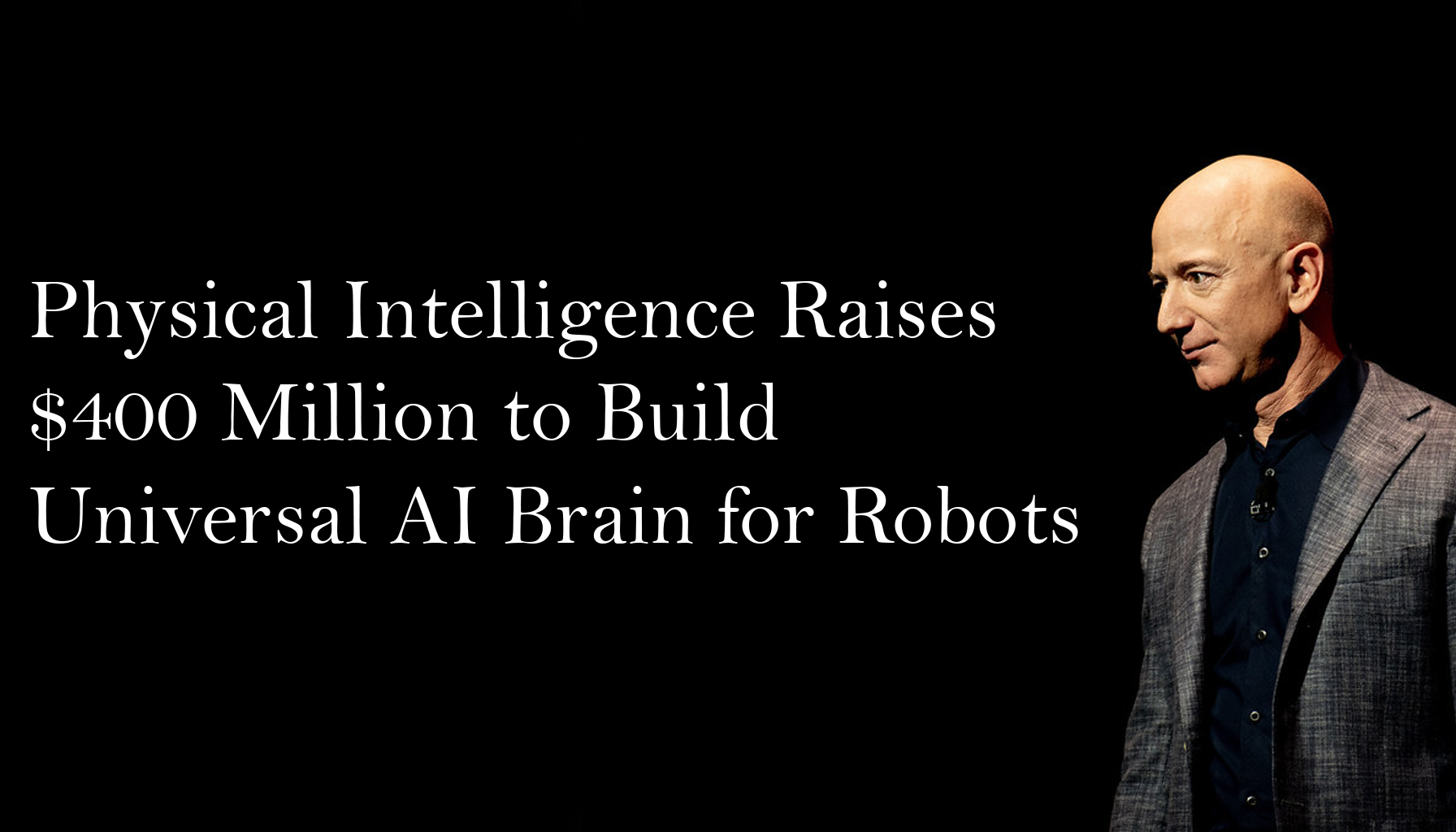Physical Intelligence Raises $400 Million to Build Universal AI Brain for Robots

Introduction
In a groundbreaking move that could redefine the robotics landscape, Physical Intelligence, a pioneering AI startup, has announced a staggering $400 million in seed funding. This massive investment, led by prominent figures like Jeff Bezos and OpenAI, will fuel the company's ambitious goal of developing a universal software platform to power the next generation of intelligent robots. This unprecedented funding for a seed-stage robotics company underscores the growing excitement and investment in the field of AI-powered robotics.
The Quest for a Universal Robot Brain
Imagine a world where robots seamlessly integrate into our lives, performing a wide range of tasks with human-like intelligence and adaptability. This is the vision driving Physical Intelligence. The company aims to create a standardized AI "brain" that can be deployed across diverse robot platforms, regardless of their manufacturer or specific function. This universal approach promises to accelerate the development and adoption of robots by eliminating the need for costly and time-consuming custom software development for each new application. By providing a common foundation for robot intelligence, Physical Intelligence aims to democratize access to advanced robotics technology and unlock its full potential across various industries.
Unlocking the Potential of Robotics with AI
The robotics industry has long been hampered by the lack of interoperability and standardization. Each robot typically requires specialized software tailored to its hardware and intended tasks. This fragmentation hinders innovation and scalability. Physical Intelligence's platform seeks to overcome these challenges by providing a common foundation for robot intelligence. By abstracting the complexities of AI development, the company empowers robot manufacturers and developers to focus on hardware innovation and specific applications, while leveraging a powerful, pre-trained AI brain. This streamlined approach promises to reduce development costs, accelerate time-to-market, and foster a more vibrant and interconnected robotics ecosystem.
The Power of Physical Intelligence's Approach
Physical Intelligence's platform is built on cutting-edge AI research, including advanced techniques like reinforcement learning, deep learning, and computer vision. This enables robots to learn from their experiences, adapt to new situations, and perform complex tasks with increasing autonomy. The platform's modular design allows developers to customize and extend its capabilities, tailoring it to specific robot platforms and applications. This flexibility opens up a vast array of possibilities, from industrial automation and logistics to healthcare and home assistance. For example, in a warehouse setting, the platform could enable robots to navigate dynamic environments, identify and grasp objects, and collaborate with human workers. In healthcare, it could power robots that assist surgeons with complex procedures or provide personalized care to patients.
A Deep Dive into the Technology
Physical Intelligence's platform leverages a combination of advanced AI techniques to achieve its goal of generalized robot intelligence. Reinforcement learning allows robots to learn through trial and error, optimizing their behavior based on feedback from their environment. Deep learning enables them to process vast amounts of data, such as images and sensor readings, to perceive and understand their surroundings. Computer vision provides them with the ability to recognize objects, navigate complex environments, and interact with humans more naturally. By combining these powerful AI capabilities, Physical Intelligence's platform enables robots to perform a wide range of tasks with increasing autonomy and adaptability.
Implications for the Robotics Industry
The emergence of a universal AI platform for robots has significant implications for the robotics industry. By reducing development costs and complexity, it could democratize access to advanced robotics technology, enabling smaller companies and startups to compete more effectively. It could also accelerate the adoption of robots across various industries, leading to increased productivity, efficiency, and safety. Furthermore, the platform's ability to foster interoperability could lead to a more interconnected and collaborative robotics ecosystem, where developers can share knowledge, tools, and resources more easily.
The Role of Key Investors
The involvement of high-profile investors like Jeff Bezos and OpenAI further validates the potential of Physical Intelligence's technology. Bezos, the founder of Amazon, has a long-standing interest in robotics and automation, as evidenced by Amazon's extensive use of robots in its fulfillment centers. OpenAI, a leading AI research company, brings its expertise in cutting-edge AI algorithms and deep learning to the partnership. The combined support of these industry giants provides Physical Intelligence with the resources and strategic guidance needed to achieve its ambitious goals.
Fueling the Future of Robotics
The $400 million seed funding is a testament to the immense potential of Physical Intelligence's vision. This substantial investment will enable the company to accelerate its research and development efforts, expand its team, and bring its platform to market. With the backing of industry giants like Jeff Bezos and OpenAI, Physical Intelligence is poised to become a key player in the rapidly evolving robotics landscape. The company's innovative approach could pave the way for a future where robots seamlessly integrate into our lives, enhancing our productivity, safety, and well-being.
A New Era of Robotics
Physical Intelligence's pursuit of a universal robot brain marks a significant leap forward in the field of robotics. By breaking down the barriers of software development and fostering interoperability, the company is accelerating the pace of innovation and expanding the horizons of what robots can achieve. This groundbreaking approach could usher in a new era of robotics, where intelligent machines become an integral part of our everyday lives, transforming industries and enhancing human capabilities.
Conclusion
Physical Intelligence's ambitious vision and substantial funding have positioned the company at the forefront of the robotics revolution. Their pursuit of a universal AI brain for robots has the potential to reshape the industry, making robots more intelligent, adaptable, and accessible than ever before. As the company continues to develop and refine its platform, we can expect to see a wave of innovation in robotics, with new applications and possibilities emerging across various sectors. The future of robotics is bright, and Physical Intelligence is playing a pivotal role in shaping it.



